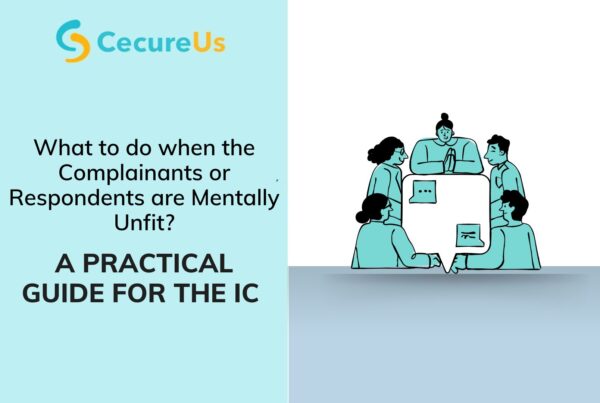
Workplace pregnancy discrimination is commonly faced by young and expecting mothers in every field. While pregnancy is a challenging phase in women’s lives, with body and hormonal changes impacting their daily routine, workplace pregnancy discrimination and unsolicited advice and judgments from colleagues and managers can lead to prenatal stress for expecting mothers. Pregnancy discrimination at the workplace, including reduced salaries and delayed promotions, impacts young women’s careers and is detrimental to their physical and mental health. Every employer and manager must understand how being inclusive and supportive can reduce stress and anxiety for pregnant women in their workplaces.
Here are a few tips for managers and supervisors on managing young and expecting mothers and helping them in their pregnancy journey.
Have an open conversation with pregnant employees –
Managers and supervisors in an organization hold a unique position to offer the needed support to their subordinates on their professional and, in some cases, personal fronts. Being the first point of contact for young and expecting mothers at the management level, their initial reaction to the news can shape the perceptions of an employee’s future in the workplace. Sometimes, managers presume that a reduced workload can be beneficial during pregnancy. However, it may not be right in all cases, and sometimes, it can have repercussions and be misinterpreted as pregnancy discrimination. Instead of offering advice or coming to assumptions, managers must have an open conversation with their employees about their health, comprehend their concerns and anticipations, and the support needed from the management and colleagues to be on the same page with the pregnant employee. This makes it easy for women to openly discuss their plans and feel secure in the organization.
Provide guidance and emotional support through their Employee Assistance Programs –
Managers must guide young mothers about the parental benefits that the organization provides and ways to avail them, flexible work timings, their maternity leave, insurance policies, etc. Rather than straightforward advice, providing emotional support to employees under stress through the Employee Assistance programs can ease the struggles and apprehensions of expecting mothers about their future in the organization. Weekly one-to-one meetings can help managers understand the health of young mothers better and guide them accordingly. Post-delivery, managers must talk to the new mothers and know about their emotional state to steer them towards counselling through Employee Assistance Programs. For many mothers battling Post-partum depression, this Employee Assistance Program can be a boon.
Debunk myths about flexible work hours –
It is a common misconception at the workplace that employees who avail flexible work timings contribute less to the team. It lies in the hands of the managers and supervisors to debunk this notion. Managers must sensitize their teams about the contributions of employees availing flexible work hours and how this benefit can be helpful to pregnant women who may have frequent and regular hospital visits and check-ups. Managers must also strictly warn the team about the penalties of passing judgmental comments about their pregnant colleagues, being discriminatory, offering unwanted advice, or asking about their personal lives.
Know the plan –
Managers must discuss the objectives for the young and expecting mothers directly. Although help from the team can aid these employees, knowing about their short-time and long-term plans during and post-delivery can help managers operate their teams better.
Manage employee interactions –
Supportive co-workers and managers reduce prenatal stress for young and expecting mothers. Managers can facilitate team interactions before and post-delivery for social support and to make pregnant women and new mothers feel included in the team. Adjusting meeting timings, allowing them their personal space during post office hours, and making their return to work a smooth and judgment-free experience can add to the emotional wellbeing of new and expecting mothers. New mothers should be allowed to pump for their new-borns in exclusive spaces in the workplace, and this should be normalized and not frowned upon. Managers must also sensitize the team about the benefits of the Employee Assistance Programs that might help identify colleagues in distress and advise them for counselling.
Maintain an inclusive organizational culture –
Through D&I programs and workshops, managers must offer assistance to the team to become more inclusive of their pregnant colleagues in the workplace. Employees can be advised and driven to be empathetic to understand a young mother’s needs and career goals and offer a supportive work culture. Any employee with a discriminatory and prejudiced mindset can be counselled to be more empathetic through the Employee Assistance Program. It is the responsibility of a manager to identify any pregnancy discrimination happening in the workplace and advice the team on the right actions.
Working women find it all the more challenging to get through the 40 weeks of pregnancy, sailing through their symptoms and health issues, managing work-related and personal issues, and meeting deadlines at work. Studies have indicated that workplace stress and anxiety during pregnancy tops the major contributing factors to Post-partum depression in young mothers. Providing a supportive, nurturing, and empathetic environment for pregnant women in their workplaces by acclimating to their needs allows them to contribute their best to the team and return to work in high spirits, leading to low employee turnovers. Organizations with a supportive Employee Assistance Program for guiding young and expecting mothers in their pregnancy journey have been acclaimed to have the best work environments for their employees.
What other steps does your employer take to support young and expecting mothers in the workplace? Do let us know in the comments. For more such blogs, visit eap.cecureus.com. Contact Us if you are concerned about yourself or a loved one. Book an Appointment? today, or call us on 18001219497.




